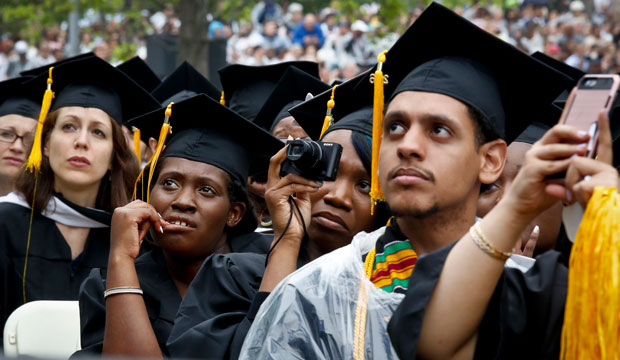As Congress deliberates on reauthorizing the Higher Education Act, any move to limit or eliminate federal lending to graduate students could potentially put African-American borrowers and Historically Black Colleges and Universities at risk, a new report by the AccessLex Institute concluded.
The study holds significance in the backdrop of various proposals that seek to cut or eliminate federal student loans like the Grad PLUS Loan Program for graduate and professional students.
Grad PLUS loans or Direct PLUS Loans offered by the U.S. Department of Education to graduate or professional students are given on the basis of the cost of attendance which is determined by the school after calculating other sources of financial assistance. The current fixed rate of interest is 7.08 percent.
According to the report, graduate borrowers are the highest-performing group in the overall federal student loan portfolio. Despite paying higher fees than undergraduates and higher interest rates, graduate students have the lowest default rates with the highest repayment rates.
Researchers also cautioned against privatizing graduate lending as an alternative to federal student loans which could potentially put African-American borrowers and Historically Black Colleges and Universities at greater risk of losing access to college. The report found black graduates relying the most on federal student loans and tend to have the highest debt balances upon graduation and struggle to repay their loans.
“Advocates for privatizing all graduate student lending do not adequately wrestle with how this policy might work in the present day. More specifically, proponents of a private student lending takeover do not address the effects, especially unintentional ones, wholesale privatization of graduate loans would have on institutions and certain populations,” the report says.
If the graduate lending is privatized, the report anticipates difficulty for students of color to obtain privately-financed credit under traditional underwriting standards. Researchers fear that private lenders would unintentionally create an environment where raising capital and other market pressures would dictate the people whom to extend loans.
The report recommended against making any change to the federal graduate lending and instead urged Congress to work on making college accessible for everyone.

